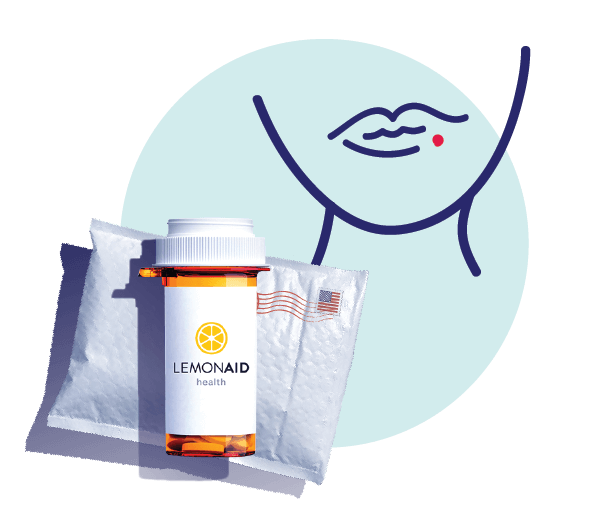Our medical team looks at the answers you give to our health questions to work out if you have cold sores. We’ll also look at your medical history to work out if it’s safe and appropriate to give you a prescription without meeting you in person.
Sometimes we’ll make the wrong call
We use evidence-based guidelines to decide when it’s safe to give you a cold sore prescription, but there’s 2 ways we can get it wrong. There’s a chance we’ll give you a prescription when you don’t actually have cold sores. If this happens you’ll take a medicine you don’t need. Alternatively, we may think you don’t have cold sores when actually you do. If this happens we’ll mistakenly decline to give you a medicine you should take.
We’re more likely to make the wrong diagnosis if this is your first cold sore outbreak. That’s why you shouldn’t use Lemonaid if this is your very first cold sore.
Alternative cold sore treatments
You don’t need to take the prescription cold sore medicines we offer because there are over-the-counter alternatives you can buy at the pharmacy. The over-the-counter alternatives are less effective, but also come with less risk of serious side-effects.
There are also prescription-strength cold sore treatments we don’t prescribe – such as creams - and you always have the option of getting a prescription for these from a doctor or nurse practitioner in person.
You’ve also got the choice of not taking any medicine whatsoever for your cold sores.
‘Off-label’ use of medicines for preventative treatment
Doctors throughout the US routinely give patients the cold sore medicines we prescribe for daily preventative treatment. But it’s important to know that the FDA hasn’t specifically approved the medicines we prescribe for daily preventative use. That said, it’s totally normal for patients to get these medicines from doctors or nurse practitioners for cold sores.


